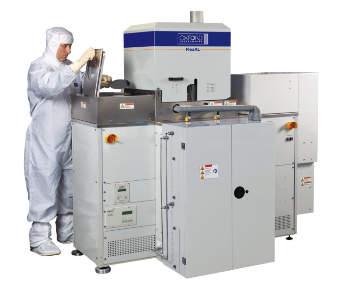Research into the emergent field of quantum computing will be carried out at the Institute for Interdisciplinary Information Sciences (IIIS), at Tsinghua University in Beijing using recently purchased plasma systems from high technology system manufacturer Oxford Instruments.
The IIIS is currently installing a new cleanroom, and has selected tools from Oxford Instruments, leaders in plasma etch and deposition wafer processing systems, to provide three systems to undertake this key research, The PlasmaPro100 ICP etch system, PlasmaPro100 PECVD deposition system with TEOS, and a FlexAL ALD system, are all ideal for this type of research due to their high performance, flexibility and ease of service.

Dr. Song, Associate Researcher from Tsinghua University said, “We chose Oxford Instruments systems after a stringent tendering process, comparing system functionality and cost. Our decision to purchase its plasma etch and deposition tools was due to Oxford Instruments’ wide range of processes and applications, the suite of systems available from this one global supplier, and the excellent service and support available to customers. We are anticipating excellent results from our cutting edge research.”
Dr Song continued, “IIIS aims to become one of the leading research centres on interdisciplinary information sciences in the world as well as to offer a facility for the research and education of theoretical computer science and quantum information science in China. We are committed to building and operating a world-class Quantum NanoFabrication facility, to the combined benefit of the Tsinghua University's researchers, and collaborators.”
“Our systems have consistently been used in fundamental research and development, involving new and advanced techniques, and the fact that our technologies will be installed at IIIS to further quantum computing is most exciting for us”, comments Dr David Haynes, Sales & Marketing Director, Oxford Instruments Plasma Technology.
About Oxford Instruments plc
Oxford Instruments designs, supplies and supports high-technology tools and systems with a focus on research and industrial applications. Innovation has been the driving force behind Oxford Instruments' growth and success for over 50 years, and its strategy is to effect the successful commercialisation of these ideas by bringing them to market in a timely and customer-focused fashion.
The first technology business to be spun out from Oxford University, Oxford Instruments is now a global company with over 2300 staff worldwide and is listed on the FTSE250 index of the London Stock Exchange (OXIG). Its objective is to be the leading provider of new generation tools and systems for the research and industrial sectors with a focus on nanotechnology. Its key market sectors include nano-fabrication and nano-materials. The company’s strategy is to expand the business into the life sciences arena, where nanotechnology and biotechnology intersect.
This involves the combination of core technologies in areas such as low temperature, high magnetic field and ultra high vacuum environments; Nuclear Magnetic Resonance; x-ray, electron, laser and optical based metrology; atomic force microscopy; optical imaging; advanced growth, deposition and etching.
Oxford Instruments aims to pursue responsible development and deeper understanding of our world through science and technology. Its products, expertise, and ideas address global issues such as energy, environment, security and health.
About Oxford Instruments Plasma Technology
Oxford Instruments Plasma Technology offers flexible, configurable process tools and leading-edge processes for the precise, controllable and repeatable engineering of micro- and nano-structures. Our systems provide process solutions for the etching of nanometre sized features, nanolayer deposition and the controlled growth of nanostructures.
These solutions are based on core technologies in plasma-enhanced deposition and etch, ion-beam deposition and etch, atomic layer deposition, deep silicon etch and physical vapour deposition. Products range from compact stand-alone systems for R&D, through batch tools and up to clustered cassette-to-cassette platforms for high-throughput production processing.